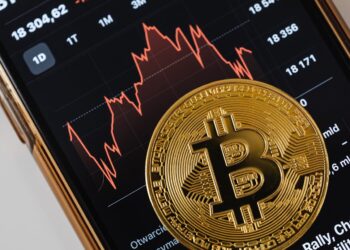Mixed Economic Signals from Japan and South Korea Add to Investor Caution Across Asia-Pacific Markets
The Chinese stock market’s early rally lost steam on Tuesday after a briefing from China’s National Development and Reform Commission (NDRC) failed to provide meaningful details on potential new economic stimulus. Investors, who had been anticipating more concrete actions from the Chinese government to shore up growth, were left disappointed. This dampened enthusiasm after a sharp initial surge in the markets following the week-long Golden Week holiday.
China’s Initial Rally Fizzles
Mainland China’s CSI 300 index soared by over 10% in early trading as investors returned from the Golden Week holiday with high hopes for additional economic stimulus. However, those gains quickly faded as the NDRC’s briefing did not deliver the expected clarity on further policy measures to boost China’s slowing economy. By the close of the session, the CSI 300 had pared back its gains, closing up 3.8%, a far cry from the initial optimism seen at the market’s open.
Meanwhile, Hong Kong’s Hang Seng index had a particularly turbulent session. The index plunged more than 10% at one point, before recovering slightly to end with a 7.6% decline. The sharp volatility in the Hang Seng index was reflective of broader investor uncertainty about the Chinese economy’s near-term prospects. Without concrete stimulus announcements, concerns linger about China’s ability to rebound from its economic slowdown, particularly in the real estate sector, which has been a significant drag on growth.
Economic Challenges Beyond China
The cooling momentum in Chinese markets resonated throughout the broader Asia-Pacific region, where markets saw a mixed performance. In Japan, economic data released on Tuesday provided both positive and negative indicators, contributing to uncertainty for investors.
On the one hand, Japan’s household spending fell 1.9% year-on-year in August, slightly better than the 2.6% decline that had been anticipated by economists in a Reuters poll. However, this marked the fastest pace of decline since January, which had seen a much steeper 6.3% fall. The decline in spending came in spite of wage gains earlier in the year from significant pay hikes secured in Japan’s spring labor negotiations, which delivered the largest increases to unionized workers in over three decades.
On a more positive note, real wages in Japan rose in August, with average earnings climbing by 2% to ¥574,334 ($3,877.44), according to the country’s statistics bureau. This improvement in real wages could help offset the drop in household spending, but the overall economic picture remains clouded by weak domestic demand and an aging population.
Japan’s Nikkei 225 fell 1.19% following the release of the economic data, while the broader Topix index slipped by 1.59%. Investors remain cautious about the outlook for Japan’s economy, particularly in light of ongoing global uncertainties and the potential for further weakness in consumer spending.
Tech Giants Weigh on South Korea
South Korea’s Kospi index also edged lower, dropping by 0.48%, weighed down by tech giant Samsung Electronics. Samsung, one of South Korea’s largest and most influential companies, released worse-than-expected third-quarter guidance, sparking concerns about its profitability amid ongoing global chip shortages and cooling demand for consumer electronics. The decline in Samsung’s share price dragged down the broader market, contributing to a subdued trading session in South Korea.
The smaller Kosdaq index, which is focused on small-cap stocks, also posted a modest decline of 0.25%. Although South Korea has been one of the more resilient economies in the region during the global economic slowdown, the outlook remains uncertain, especially given the heavy reliance on its technology sector, which has faced significant headwinds in recent months.
Australia’s Market Slips
Meanwhile, Australia’s S&P/ASX 200 index closed down by 0.35% at 8,176.9. Despite Australia’s relatively strong economic performance in recent months, the market has faced pressure from global factors, including rising inflation, tightening monetary policies, and uncertainty in key trading partners such as China. Investors are becoming increasingly cautious as the global economic outlook remains uncertain.
Outlook for the Region
The rally in Chinese markets, though significant in early trading, was ultimately short-lived as hopes for further stimulus measures went unfulfilled. The ripple effects of this stalled rally, coupled with mixed economic data from Japan and South Korea, left investors across the Asia-Pacific region in a cautious mood. Without clearer guidance on China’s economic policies and more positive economic signals from other major economies in the region, markets may continue to face volatility and uncertainty in the near term.
You might like this article:Super Micro Sees Stock Surge After Launching Liquid Cooling Products and Shipping Over 100,000 AI GPUs











